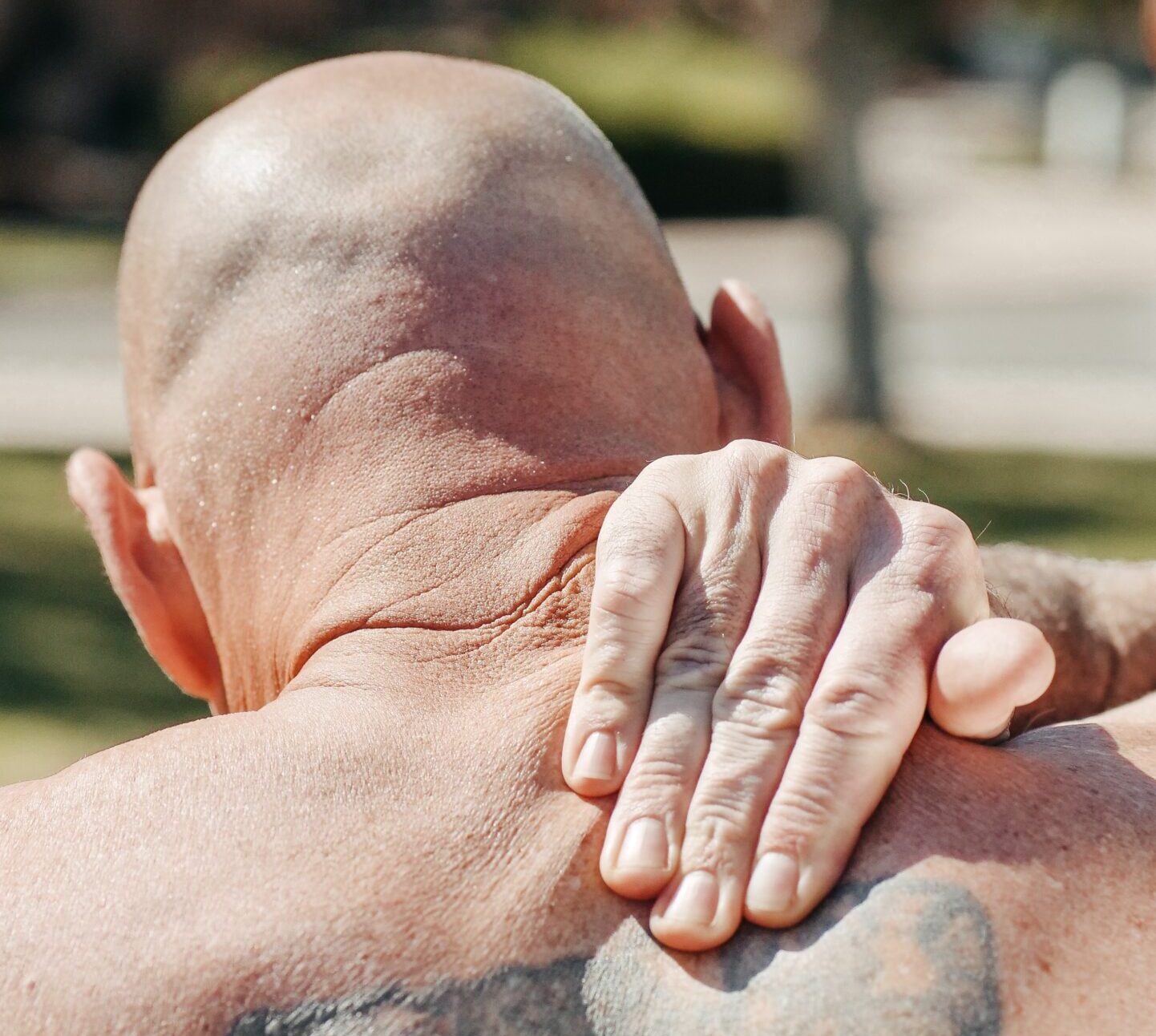How would you describe the colour blue to someone who was blind from birth? How could you describe a beautiful symphony to someone who was born deaf? How would you explain the experience of chronic pain to someone who has never experienced it?
But, that’s just not the case, I hear you say. Everyone has experienced pain, so chronic pain is simply just more of the same, extended over time, isn’t it? The simple answer is no – it’s just not like that…

I find it amazing how many medical professionals, even those who are supposedly experts in the area of pain management, simply do not really understand the experience of chronic pain. For example, how many of them could accurately describe or explain the difference between chronic pain and acute pain? Most, if not all, you would think… Not so in my experience. Or maybe it’s just laziness (they might say efficiency). After all, why ask the questions to understand the type, degree, location, trigger and so on for your pain, if they’re only going to do the same old thing and prescribe you yet another course of pain medications, often opiod in nature?
It’s a bit of an adage that you don’t have to have heart surgery yourself to become a heart surgeon, and yes, that is technically true. But how good do you ever get to be at any profession, or hobby, or interest, if you haven’t had direct, close-to-home experience of your own to draw upon?
When it comes to pain, I believe that the experience of chronic pain is pretty essential for a practitioner to really get a grasp of the many, many variations and aspects of this terrible ordeal.
Book a free discussion to understand how I can help you.
For me, it was two frozen shoulders. For the uninitiated, a frozen shoulder is an inflammatory condition of the capsule surrounding the shoulder, severly limiting mobility, and causing sudden shooting pains, affectionately known as ‘zaps’… Really sounds affectionate, right…?
I acquired my initial shoulder injury following the moving of an extra-heavy mattress into and then out of a moving van. It was no problem at the time, just a bit sore, nothing special – after all, we’re all invincible, aren’t we? Until we’re not… A couple of weeks later, my left shoulder was still aching, and seemingly getting slowly worse, rather than better. A trip to my local doctor diagnosed early stage frozen shoulder, but a scan was in order to rule out something more serious. Little did I know that frozen shoulder was plenty serious enough, thank you.

Some short-term pain medication, a few trips to the physio, and unfortunately, for me, no anti-inflammatories as I had another condition (maybe another story for another time) which ruled them out, and I thought a few weeks would sort me out. Nope – a few weeks and I was steadily worse.
The sessions at the physiotherapist were excruciating – forcing the shoulder to a degree that I thought seemed totally unreasonable. After all, my shoulder had never gone to those extremes. It was only when I saw some photos of my current range of motion that I realised that I was totally hampered by this frozen shoulder.
A few months later, and the other shoulder was going out in sympathy. Surely not, I thought, but yes. Two frozen shoulders made it nearly impossible to drive, to lift anything, even a real challenge to put a belt around my waist or brush my teeth.
Getting better took two full years, having tried natural anti-inflammatory supplements, more physio, hanging from door frames and finally I came across swimming as a therapy. I hadn’t swimmed in many years, but I thought I’d give it a go. My local swimming centre had a nice spa, steam room and sauna setup in addition to plenty of roped-off swimming lanes.

Swimming was to be my salvation. Three months, swimming most days, I was definitely on the mend. My range of motion was improving week by week, and I was almost back to being able to extend a full breast stroke – freestyle was still a good bit away from me.
Why tell you this story – after all, aren’t we supposed to be talking about how pain is misunderstood? The reason is that while my physical mobility and actual pain was a great problem, in some ways the more impactful problems were the effect on my own self-image, and in the ways that others reacted to my pain.
Looking at the others first, from family to friends to work colleagues and even people in the medical profession, the variety of responses and coping mechanisms were quite wide. Frozen shoulders, like many disabilities, are quite invisible, and so often people have no idea that you’re dealing with an issue. Simple things like taking the shopping bags off the counter suddenly become real challenges, particularly during COVID when everyone was behind a plexiglass screen. When your disability is well camouflaged, it can ge great – nobody prejudges you – but it can also be hard, as nobody expects you to have a problem unless you talk about it. And boy, do you get tired talking about it…
Another common reaction was, but it must be getting better, right – you’ve been like that for weeks now. And if I put myself in their shoes, that seems like a very reasonable thing to say. Most injuries resolve over a few weeks, or at most, a couple or three months, right? Not so for me – my shoulder went from bad to worse, and then the other shoulder started to act up, even though I was pretty sure I hadn’t injured it in any similar way. I just felt that the other shoulder was having to compensate, so was maybe getting a little more wear than normal.

Anyway, having two frozen shoulders was a real pain (rather punny, huh?). Now there was no respite, and it was hard to even find a way to sit or, even worse, sleep in any comfort. I started to sleep on my back, but as a side-sleeper by long habit, I would then wake up after an hour where I had shifted to one side or the other, and then the pain would gradually increase until I was awake. Repeat that three or four times in a night, and then see how funny the next day looks. Not so much.
I found myself getting shorter and shorter with everyone. It took less and less to set me off. My reaction to being unable to control my mobility and my pain, was to try and control other things in my environment and relationships. I became more an more challenging to deal with, and I was self-aware enough to know that it was happening. I still couldn’t do enough in the moment to stay level.
And that leads me to the self-image issues. I always felt physically capable. Before having had a serious and completely unexpected cardiac surgery in 2017, I was bullet-proof. Always a bit heavier than I would have liked, I still had been quite fit and always strong. My cardiac surgery was a bolt from the blue, and suddenly I was a diagnosed diabetic, on blood thinners for the rest of my life, and oh yes, I had had a minor stroke. Nothing special really – it only affected the part of my brain responsible for inhibitions, or so they say…

Chronic pain from my frozen shoulders changed my self-belief about my strength, resilience and even my patience, and not in any good ways initially. I couldn’t believe that pain could cause so many limitations and impacts, and when both shoulders were impacted, that was nearly the end of it all. Having dealt with varying degrees of anxiety and depression myself over the years, I was taken aback by how much chronic pain can debilitate the mind as well as the body. When my physical pain started to improve, the psychological damage was much slower to heal than I could ever have expected.
So what if you have a condition that seems like it’s for life, with little or no real prospect of cure or perhaps, limited treatment options? What that can do to the mind is almost intolerable, and there are a surprising number of people who look to find creative ways to bring their pain to an end. I was almost one of them myself.
What I have found is that gaining a better understanding of pain has been vital. ‘Pain exists only in the brain’ can seem like a trite and unhelpful piece of knowledge, but a deep understanding of this is a key to improvement. Thankfully, as we have come to better understand the workings of the mind, we have learned to harness our mind’s incredible adaptability and its ability to focus, and refocus, to frame and reframe, to continuously learn and develop new coping strategies. Sometimes we just need a guide to help us on our way.

For me, I found my guides – somewhat a mixture of the physical in the swimming, and in the psychological, in hypnosis, self-hypnosis, meditation and mindfulness (all of which really boil down to the same thing, in fact). Now I like to try and pay it forward, helping others to better manage their pain experience, find new hope and really improve their day to day quality of life.

